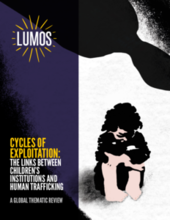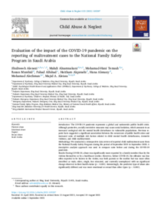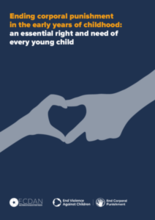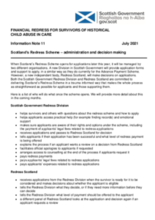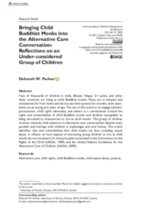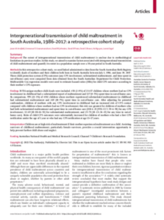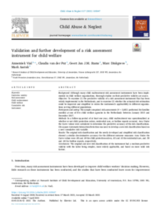Displaying 71 - 80 of 1089
This book explores the process of orphanage trafficking as a form of child trafficking in international law, examining the contexts in which it occurs and providing a comprehensive, holistic approach to addressing the issue as a form of trafficking
This Global Thematic Review examines the growing evidence of the links between the institutionalisation of children and human trafficking. It highlights how the relationship between the two compounds the harmful nature of both phenomena and offers insight into the global response needed.
This report found that the types of abuse and the characteristics of both abused children and offenders in Saudi Arabia saw significant changes during the COVID-19 pandemic. Sexual and emotional abuses were reported more frequently, and the male gender is considered to feature more commonly in reports prior to the pandemic era than during the pandemic.
This briefing, authored by Jorge Cuartas with End Violence and the Early Childhood Development Action Network examines evidence from research on the impacts of violent punishment on young children, global prevalence and progress towards universal prohibition, and strategies to end corporal punishment. It adds yet more weight to the call that all countries must take steps to prohibit and eliminate violent punishment of all children without delay.
Update on administration and decision making work taking place since the The Redress for Survivors (Historical Child Abuse in Care) (Scotland) Bill was passed by Parliament in March 2021.
This article identifies risks and vulnerabilities that child monks can face, including sexual abuse. It reflects on how aspects of entrusting young children to live as child monks do not necessarily fit with principles articulated in the Convention on the Rights of the Child (UNGA, 1989) and the United Nations Guidelines for the Alternative Care of Children (UNGA, 2009).
In this webinar, prevention experts discuss the process, experiences, and challenges of the ongoing integration of IPV prevention and gender into the Investing in Children and their Societies (ICS) Skilful Parenting Programme, and inclusion of VAC in the Indashyikirwa couples IPV prevention programme.
In this study, the authors aimed to examine factors associated with intergenerational transmission of child maltreatment and quantify its extent in a population sample over a 30-year period in South Australia.
The aim of this article is to examine (1) the predictive validity of a risk assessment instrument that has been widely implemented in the Netherlands, and to examine (2) whether the actuarial risk estimation could be improved and simplified to widen the instrument’s applicability to different organizations serving different populations.
The objective of this article is to demonstrate brain changes and their functional repercussions using magnetic resonance imaging in people exposed to chronic child abuse.


